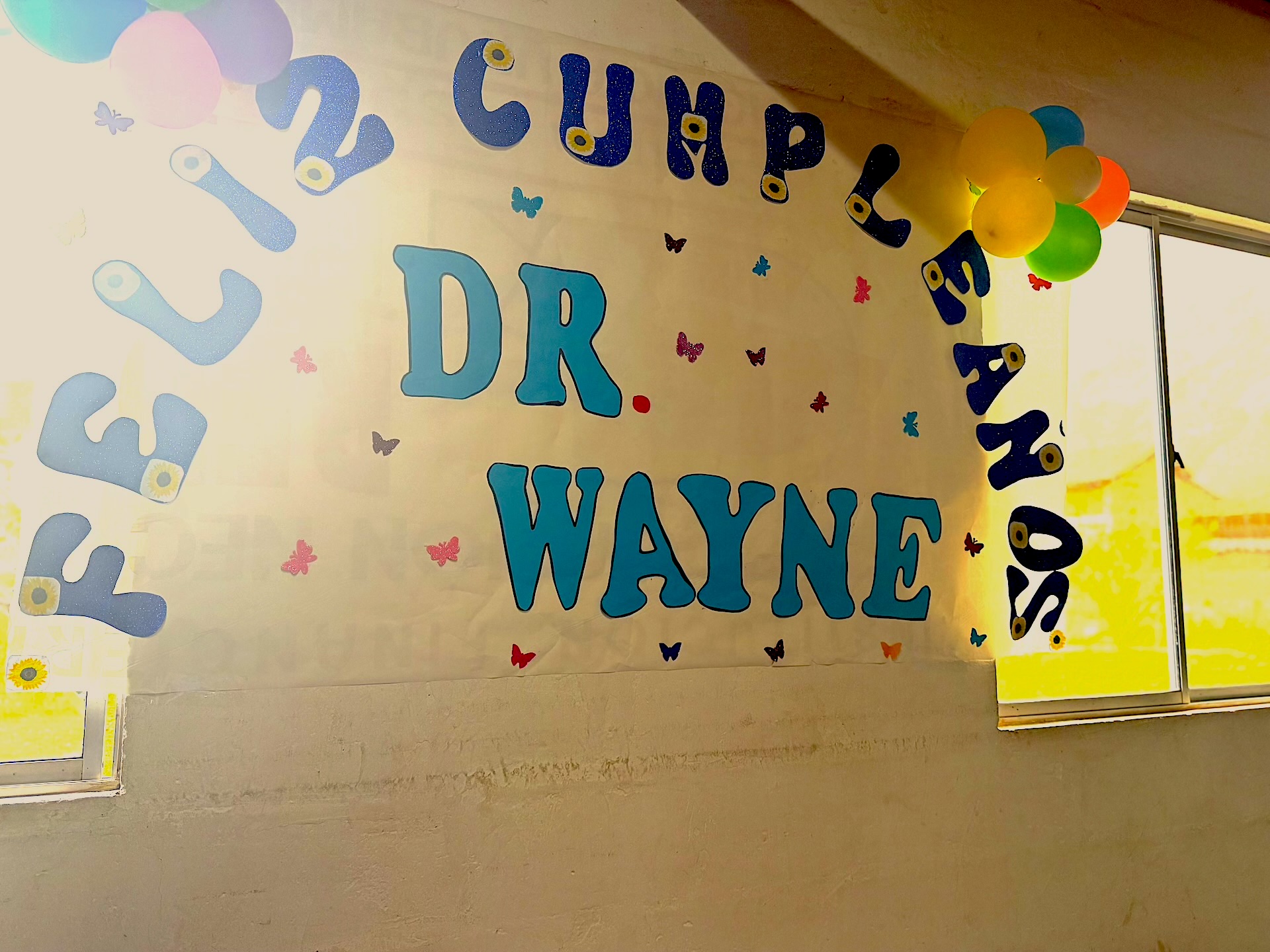The Secret Sauce of our Work – wayne centrone
 Yesterday, I experienced something that summed up, in a heartbeat, everything we strive to be at HBI. The staff and boys at Casa Girasoles surprised me with a birthday party — they danced, sang, and even put together a video. The love I felt in that moment was genuine, warm, and unequivocal. It was not something a program manual could describe. It was the essence of our work: we are, above all, family.
Yesterday, I experienced something that summed up, in a heartbeat, everything we strive to be at HBI. The staff and boys at Casa Girasoles surprised me with a birthday party — they danced, sang, and even put together a video. The love I felt in that moment was genuine, warm, and unequivocal. It was not something a program manual could describe. It was the essence of our work: we are, above all, family.
Children living outside parental care need many things — food, shelter, health care, and education. But what shapes a child’s future most powerfully is far more human and far less transactional: love, safety, belonging, and the knowledge that their voice matters. That is the secret sauce of our approach.
Family is not just a model; it is a commitment. Our family approach is not about replacing a child’s family of origin. We know that for most children, their family of origin remains part of their story, their identity, and often, their greatest hope for reconnection. We prioritize safe, loving environments where children can heal and grow, while simultaneously honoring and preserving ties to their families of origin whenever it is safe and possible to do so.
We are guided by our commitment to put the child first in all our work. This means recognizing and honoring the simple truths that… Children deserve to be loved and to feel safe and secure. Children deserve to be seen, heard, and celebrated for who they are. Children deserve opportunities to reconnect with their families on their terms.
A family approach centers the child’s dignity and voice. At HBI, we build programs that restore dignity and agency. We listen. We ask. We create spaces where a child’s opinion is not just solicited — it shapes decisions about their life. When a child knows their voice is valued, they begin to trust the world again. This trust is the foundation for learning, healthy relationships, and long-term wellbeing. We design care practices around each child’s uniqueness — their personality, culture, strengths, and wounds. That’s what family does: it adapts, protects, and celebrates an individual while embedding them within a network that cares for them through good times and bad.
Supporting families, not superseding them. Too often, “placement” is treated as the end of intervention — a box to check. Our work is different. We actively seek to understand each child’s family story and to create pathways for safe reconnection whenever possible. This can mean supported visits, mediation, family strengthening programs, or helping families access the services they need to become stable caregivers again.
At the same time, not every family relationship can be immediately repaired. When family reconnection is not safe or in the child’s best interest, we must provide a family-like environment that honors that child’s uniqueness and helps them thrive. Either way, our approach is rooted in respect for family — biological, foster, or chosen — and in an unshakable belief that children belong in relationships, not institutions.
Every day moments become the work’s proof. The surprise party at Casa Girasoles wasn’t programmatic. It was spontaneous. It was messy and imperfect and wholly human. That small, joyous moment — singing, dancing, creating something together — is what tells me our work is working. It shows children learning to trust, staff showing consistent love, and a community forming where each person matters. Those moments are our milestones: a child asking for help, a caregiver listening when it matters, laughter shared at dinner, a child reconnecting with their parent, and finding a new way forward. They are quieter than statistics and more telling than policy briefs.
I am humbled and grateful for the love my Casa Girasoles family showed me. That feeling — of being known, celebrated, and held — is why we come to work every day. It is the closest thing I can point to when asked what makes Health Bridges International different. We don’t just provide services; we create belonging. Because when children know they are part of something bigger than themselves — a family that honors them, listens to them, and walks with them — everything changes.

